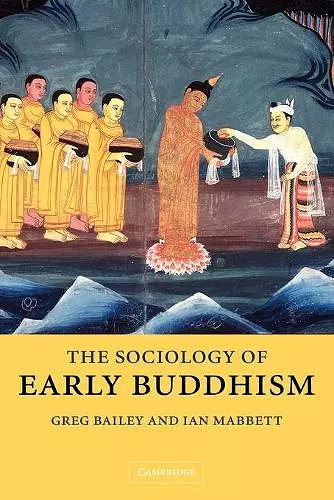The Sociology of Early Buddhism
Analyzing the interplay of Buddhism and society in ancient India
Greg Bailey author Ian Mabbett author
Format:Paperback
Publisher:Cambridge University Press
Published:16th Mar '06
Currently unavailable, and unfortunately no date known when it will be back
This paperback is available in another edition too:
- Hardback£90.00(9780521831161)

This book examines how early Buddhism thrived in a flourishing urban environment, despite its renunciant nature, ultimately becoming a major world religion.
In The Sociology of Early Buddhism, the author explores the intriguing relationship between early Buddhism and the socio-economic landscape of mid-first millennium north-eastern India. The book begins by addressing the apparent contradiction of a renunciant movement thriving in a robust urban environment. This inconsistency prompts a deeper investigation into how Buddhism adapted and flourished amidst the burgeoning economic conditions of the time. By examining the cultural uniformity that emerged in the newly formed Indian states from the fifth century BCE, the author sheds light on the factors that contributed to Buddhism's growth.
The narrative delves into the lives of the Buddha and other prominent monks, illustrating how they navigated various social strata while remaining true to their ascetic ideals. Despite the ascetic imperative, these early monks were adept at integrating into the urban landscape, which allowed them to connect with a diverse audience. The book argues that this adaptability was a crucial element in the expansion of Buddhism as a significant world religion.
The Sociology of Early Buddhism is not only a valuable resource for those engaged in Buddhist studies but also appeals to historians, sociologists, and anthropologists interested in the interplay between religion and society. Through a comprehensive analysis of early Buddhism in its social and economic contexts, the book provides insights into how these monks capitalized on their environment to foster the growth of their faith.
'It is a scholarly and objective study, despite the fact that it tends to underrate other opinions.' Expository Times
'This is a substantial work of scholarship, closely written, a mass of facts and arguments, with an impressive bibliography. It is certainly a useful compilation.' Bulletin of the SOAS
ISBN: 9780521025218
Dimensions: 230mm x 155mm x 20mm
Weight: 446g
296 pages